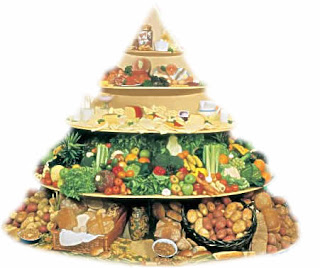
A woman’s diet especially during pregnancy should include many vitamins and what doctors believe is that a pregnant woman must increase the intake of vitamin C. New studies have suggested that if there are insufficient levels of vitamin C before and during pregnancy, there is a higher risk involved of damage to the developing baby. A low amount of vitamin C can result in a ruptured membrane and premature delivery.
The role of Vitamin C during pregnancy is quite significant. This water-soluble essential nutrient is very important for repairing tissues, collagen formation and numerous metabolic processes that include iron metabolism and converting folic acid to folinic acid.
Pregnant women should consume 85 mg of vitamin C daily as recommended by DRIs. The intake should be sufficient especially during the second trimester.
When the pregnancy approaches the end of the third trimester, the sac membranes that hold the fetus and amniotic fluid that surrounds the fetus will start to rupture, a sign of onset of delivery of the baby. The membranes’ premature rupture can lead to premature delivery. An adequate amount of vitamin C intake can reduce this risk.
Collagen is the main component that folds the fetal membrane and it preserves the chorio amniotic membranes’ mechanical strength. Intrauterine or cervicovaginal infections are some of the conditions that result from low Vitamin C levels.
Vitamin C also helps to develop the baby’s teeth and bones. For the formation of hemoglobin, Vitamin C assists in proper absorption of iron. Even after pregnancy, vitamin C supplies nutrients that your baby needs during breast-feeding.
Tomatoes, citrus fruits, tomato juice, brussel sprouts, cabbage, potatoes, cauliflower, broccoli, and spinach are all good sources of vitamin C. However, you can take prenatal vitamins that have the recommended 85 mg of vitamin C level. Before you buy your prenatal supplement, check that the vitamin C level is appropriate. A pregnancy vitamin is the best way to include vitamin C if you have any concerns about your diet.
The role of Vitamin C during pregnancy is quite significant. This water-soluble essential nutrient is very important for repairing tissues, collagen formation and numerous metabolic processes that include iron metabolism and converting folic acid to folinic acid.
Pregnant women should consume 85 mg of vitamin C daily as recommended by DRIs. The intake should be sufficient especially during the second trimester.
When the pregnancy approaches the end of the third trimester, the sac membranes that hold the fetus and amniotic fluid that surrounds the fetus will start to rupture, a sign of onset of delivery of the baby. The membranes’ premature rupture can lead to premature delivery. An adequate amount of vitamin C intake can reduce this risk.
Collagen is the main component that folds the fetal membrane and it preserves the chorio amniotic membranes’ mechanical strength. Intrauterine or cervicovaginal infections are some of the conditions that result from low Vitamin C levels.
Vitamin C also helps to develop the baby’s teeth and bones. For the formation of hemoglobin, Vitamin C assists in proper absorption of iron. Even after pregnancy, vitamin C supplies nutrients that your baby needs during breast-feeding.
Tomatoes, citrus fruits, tomato juice, brussel sprouts, cabbage, potatoes, cauliflower, broccoli, and spinach are all good sources of vitamin C. However, you can take prenatal vitamins that have the recommended 85 mg of vitamin C level. Before you buy your prenatal supplement, check that the vitamin C level is appropriate. A pregnancy vitamin is the best way to include vitamin C if you have any concerns about your diet.
